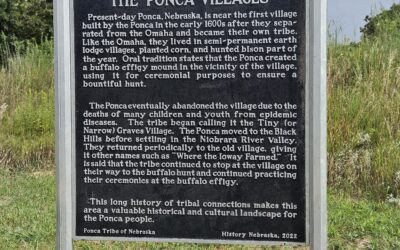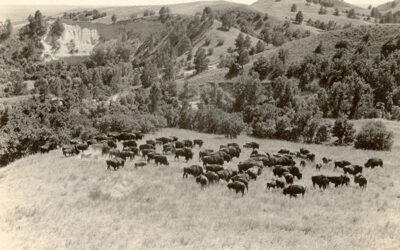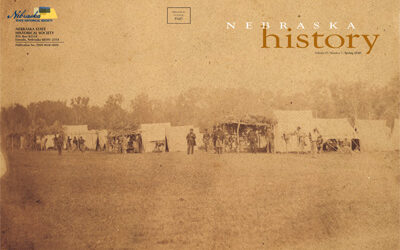Ottomar H. Rothacker’s short but spectacular career as a newspaperman in Denver and Omaha attracted a good deal of attention. The subject of Lewis O. Saum’s “The Good Die First: The Meteoric and Brief Career of O. H. Rothacker,” in the Spring 2005 issue of Nebraska History, Rothacker is especially remembered for his campaign while editor of the Omaha Republican against a rival editor, Edward Rosewater of the Omaha Bee.
Rothacker’s early years are obscure. He apparently spent time in New York City and then did newspaper work in upstate New York. While in his early twenties he edited a paper in Louisville, Kentucky. In his middle twenties (probably in late 1878), he assumed control of the Denver Tribune. While in Denver Rothacker became socially prominent and in 1883, married the daughter of Sterling P. Rounds, the chief executive officer of the U.S. Government Printing Office.
Unfortunately Rothacker’s career did not prosper. Although colleagues and correspondents were guarded in their assessments, it appears that he was viewed as brilliant but erratic-possessed of an artistic temperament but with little ability to handle details. By the fall of 1885 he was living with his father-in-law’s family in Washington D.C. and doing some “desultory correspondence” for the Denver News. He later became editor of The Hatchet, a Washington D.C. weekly, and the author of a booklet of prose and poetry entitled Some Phases: A Review of Ingersoll and His Methods.
In 1886 Rothacker and his wife’s family, the Roundses, moved to Omaha, where his father-in-law arranged for Rothacker to buy the Omaha Republican. Late in 1887 Rothacker briefly edited the Omaha Daily News, resuming the editorship of the Republican in early January 1888, shortly after the death of Rounds. As editor of the Republican Rothacker initiated a fiery campaign against Edward Rosewater, editor of Omaha’s other Republican newspaper, the Omaha Bee. Editorials directed at Rosewater (such as “Vermin” and “About Skunks”) all but assured repercussions, and a violent argument between Rothacker and Rosewater occurred on an Omaha street. A newspaper cartoon depicting the rough encounter appeared in the Democratic Omaha World, on April 22, 1887.
When Rothacker left the Republican is unclear, but he wrote occasional pieces for the paper as late as June 1888. What seems to have been his last published work, a parody entitled “An Anarchist,” appeared serially in America, a Chicago weekly, in early 1889. Rothacker died at the age of thirty-four of tuberculosis. He is buried in Forest Lawn Cemetery in Omaha.



